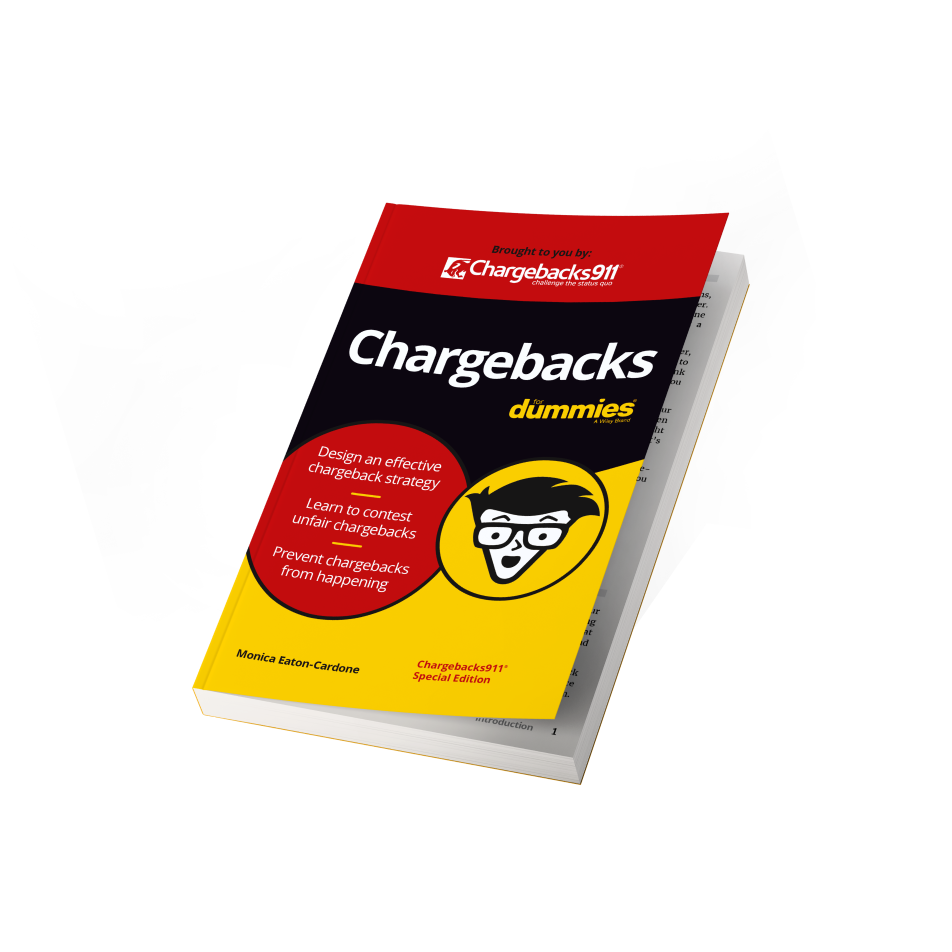10 Steps to Prevent Late Presentment Chargebacks
A late presentment chargeback can throw you for a loop. For one thing, it doesn’t start with a customer dispute. Rather, this type of chargeback comes directly from the issuer, who claims that you missed a deadline for submitting transactions for processing.
Contesting a late presentment chargeback is typically a bad idea. You need irrefutable evidence that a mistake was made. In some instances, trying to correct the mistake could leave you with an additional chargeback.
Fortunately, late presentment chargebacks are most often the result of an error on your end. That means they are almost 100% avoidable with a little vigilance on your part.
Recommended reading
- What Happens if You File a False Chargeback Claim?
- Provisional Credits: Here’s Everything You Need to Know.
- Here are the 7 Valid Reasons to Dispute a Charge
- Chargeback Stats: All the Key Dispute Data Points for 2025
- A Step-by-Step Guide to the 2025 Chargeback Scheme
- A Step-By-Step Guide to the Chargeback Process in 2025
What is Presentment?
Late presentment refers to missing a deadline. In this instance, the deadline to present credit card transactions for processing. Before we get too far into late presentment, though, it will be helpful to review the key stages of credit card processing.
Every credit card purchase from your business involves multiple entities, with more moving parts at play during different stages. Before you get paid, the transaction must go through four distinct stages:
Stage #1 | Authorizing
You must request authorization prior to completing a transaction. This is to ensure the card hasn’t been reported lost or stolen, the cardholder’s account is in good standing, and there are sufficient funds or credit available to cover the transaction. If the authorization request is approved, the transaction can be completed, and the act of processing will advance to the next stage.
Stage #2 | Batching
You later review that day’s sales, making sure each one was authorized and signed off on by the cardholder. After doing this, you “batch” all the sales together and submit them to the acquirer in one large group.
Stage #3 | Clearing
After the acquirer receives the batch, each sale is routed to the appropriate issuing bank. Transactions are routed from the acquiring bank to the issuing bank and then back to the acquirer via the card networks.
Stage #4 | Funding
Funding is the final stage in processing a credit card transaction. After the acquirer receives payment from the issuer, the funds (minus all the various interchange fees) get deposited in your account, and the cardholder is billed.
What is Late Presentment?
Presentment occurs at stage two of the process outlined above when you submit transactions for clearing.
You have a limited time frame in which to present the transaction to the bank. Issuers and card networks want to be sure you submit transactions quickly so that processing and customer account billing happen in a timely manner.
There are specific reasons for this. The bank authorized the transaction based on the cardholder’s status at the time authorization was requested. If you wait days or weeks to present a transaction, the cardholder’s account status might change; they may no longer have the funds by the time you finally submit the transaction.
Also, there’s a good chance the cardholder won’t remember the transaction at all. That could lead to a customer dispute. The card networks impose strict deadlines for presentment to help prevent this. Submit too late; the transaction will probably be returned… along with a late presentment chargeback.
Like most chargeback reason codes, late presentment is not as simple as it seems on the surface. Visa and Mastercard, for example, have different approaches, conditions, and timelines relating to late presentment chargebacks. So, let’s break down late presentment meanings by card brand.

Late Presentment Rules: Visa
Visa uses reason code 12.1 for late presentment chargebacks. According to Visa, any transaction not sent within the timeframe required will be considered a late presentment, meaning you will be liable for the amount involved.
| Visa Transaction Type | Presentment Timeframes |
| Visa Electron and ATM | Within 5 calendar days of the transaction date* |
| Visa Prepaid Load Service (Visa ReadyLink) | Within 2 calendar days of the transaction date |
| Merchandise Returns and Credits | Within 5 calendar days of the transaction date |
| All Other Transactions | Within 8 calendar days of the transaction date* |
*Exceptions apply in various countries in the Asia-Pacific region. See the Visa Core Rules for more information.
So, what would keep a merchant from presenting a transaction within the right timeframe? They could have forgotten, but that seems unlikely to cause most late presentment reason code cases.
One of the most common mistakes involves submitting a transaction with the wrong account number. If you do this, it may result in a late presentment dispute.
Because the initial chargeback process takes so long, there’s little chance you’ll be able to resubmit within 120 days of the transaction. Not only would the original chargeback stand, but you could also receive a late presentment chargeback from the resubmission.
Visa Representment Options
Representment options are quite limited for Visa late presentment chargebacks. If you failed to process the transaction promptly, the chargeback must be accepted. If the chargeback was a mistake, the acquirer can dispute the chargeback on your behalf by sharing the correct transaction date with the issuer.
Late Presentment Rules: Mastercard
Mastercard uses reason code 4842 for late presentment chargebacks, but the conditions are considerably more complex. For a Mastercard late presentment chargeback to be valid, all the following conditions must apply:
- The cardholder’s account must be permanently closed.
- The issuer used good-faith efforts to collect the transaction amount from the cardholder.
- The transaction was not presented within one of the stated time frames.
The timeframes themselves are even more complicated. The acquirer has a certain number of days after the transaction in which to present the transaction to the issuer. The exact timeframe can vary considerably, though, depending on the conditions of the situation.
Extenuating circumstances apply if the transaction in question was:
- Completed with electronically recorded card information.
- Completed with manually recorded card information.
- A payment transaction.
- A contactless transit aggregated transaction.
| Mastercard Transaction Type | Mastercard Presentment Timeframes |
| All electronic card transactions | Within 7 calendar days of the transaction date |
| Manually-recorded card transactions | Within 30 calendar days of the transaction date** |
| Contactless transit aggregated transactions | Within 14 calendar days of the transaction date |
**For manually-recorded card transactions involving both a US-based merchant and payment card issued in the US region, the time limit for presentment is 14 calendar days from the transaction date.
This is still not an exhaustive list, though. An acquirer has a maximum of 30 calendar days from the Central Site Business Date to present a transaction if they were forced to delay presentment for any of the following reasons:
- The merchant delayed submitting the transaction as permitted in the Mastercard Transaction Processing Rules.
- A national bank holiday of at least four consecutive days occurred.
In addition, a standard payment transaction must be presented in clearing within one business day of the authorization date to avoid a late presentment chargeback.
Mastercard Representment Options
The merchant must accept the chargeback if a mistake was made and the Mastercard transaction was presented late. However, if the chargeback was issued in error, there are representment options you can take advantage of:
- An acquirer can re-present with documentation that proves the correct transaction date (if recorded incorrectly) and that the applicable clearing deadlines were met.
- You can dispute a chargeback if the cardholder’s account wasn’t permanently closed after the chargeback was filed.
- If the task of processing the transaction was delayed because of approved exceptions to the clearing deadlines, you can dispute the chargeback.
10 Best Practices to Prevent Late Presentment Chargebacks
Now that we have a better understanding of the process, it should be pretty clear that late presentment is something to avoid at all costs. Thankfully, you can do a variety of things to help prevent late presentment; most of these practices won’t cost much but a little time and effort.
Here are ten best practices to help stop late presentment chargebacks before they happen:
#1 | Be Quick with Transactions
Try to process transactions right away, ideally on the same day you make the sale or offer the service. Waiting too long might confuse your customer when they finally see the charge show up on their statement.
#2 | Details are Key
Make sure every transaction is complete with all the necessary details. This includes the transaction date, a clear description of what’s sold or served, the amount, and customer information. This helps your customers easily remember and recognize their purchases.
#3 | Speedy Order Fulfillment
For those selling products, ship orders fast and share tracking details with your customers. If shipping is delayed, customers might dispute the charge, thinking they’ve been billed for something they haven’t received yet.
#4 | Keep Customers in the Loop
Always communicate openly with your customers, especially if any delays or issues occur in the processing stage. Keeping them updated can prevent misunderstandings and unnecessary disputes.
#5 | Make Your Billing Statements Clear
Use billing descriptors that clearly indicate your business name and what the transaction was for. This includes the “soft” billing descriptor that appears until the transaction is finalized. This will help customers quickly identify a transaction.
#6 | Step Up Verification Processes
Implement measures like Address Verification Service (AVS) and Card Verification Value (CVV) checks to confirm the identity of the person using the card. Validating users quickly and avoiding manual review whenever possible speeds up the process.
#7 | Top-Notch Customer Service
Make sure your customer service is easy to reach and helpful. Often, customers resort to chargebacks in the event of a processing delay because it seems easier than dealing with unresponsive customer support.
#8 | Watch Your Transactions Closely
Keep an eye on your transaction patterns for anything unusual. Spotting and addressing issues early, like pinpointing the source of repeated failed presentment attempts, can help avoid late presentment chargebacks.
#9 | Educate Your Team
Train your team on the importance of quick and accurate transaction processing and how to handle card payments properly. Well-informed employees are less likely to make mistakes that lead to delays and chargebacks.
#10 | Stay Up-to-Date on Presentment Rules
Keep yourself informed about the latest rules of card networks regarding presentment. Knowing these rules can help you eliminate some disputes, and even contest chargebacks more effectively.
Prevention is Key
Despite all this great advice, the fact remains that most chargebacks are not so easy to prevent.
Merchants tend to rely on reason codes, which seldom tell the whole story. That’s why Chargebacks911® created Intelligent Source Detection™, a proprietary system that can determine the true cause of chargebacks. Once you know the true source, you can deploy the right tools.
If you’d like more information on this revolutionary solution or need help with other chargeback-related issues, contact us today.
FAQs
What is a late presentment?
Late presentment occurs when a merchant delays processing a credit or debit card transaction, leading to the charge appearing on the customer's statement significantly later than the actual date of purchase. This delay can cause confusion for the customer, potentially resulting in disputes or chargebacks.
Can a merchant charge my card months later?
It depends, A merchant typically has no more than 30 days in which to present a transaction to the bank for processing. However, this time limit may be extended in some circumstances; for instance, if the final transaction amount is not known at the time of the transaction.
What is payment presentment?
Payment presentment is the process by which a merchant submits a credit or debit card transaction to their bank, which then sends it through the card network to the cardholder's bank for approval and payment. This process is essential for completing a transaction and ensuring the merchant receives payment for the goods or services provided.
What are the rules of presentment?
Payment presentment rules, set by card networks like Visa and Mastercard, require merchants to submit transactions for processing within a specified timeframe, typically a few days after the service is rendered or the product is delivered. These rules ensure timely and accurate billing, helping to maintain trust in the payment system and reducing the risk of disputes.
What is chargeback representment?
Chargeback representment is the process by which a merchant responds to a chargeback by providing evidence to the bank to prove that a transaction was legitimate and properly handled. This is the merchant's opportunity to dispute and reverse the chargeback, safeguarding their revenue.













